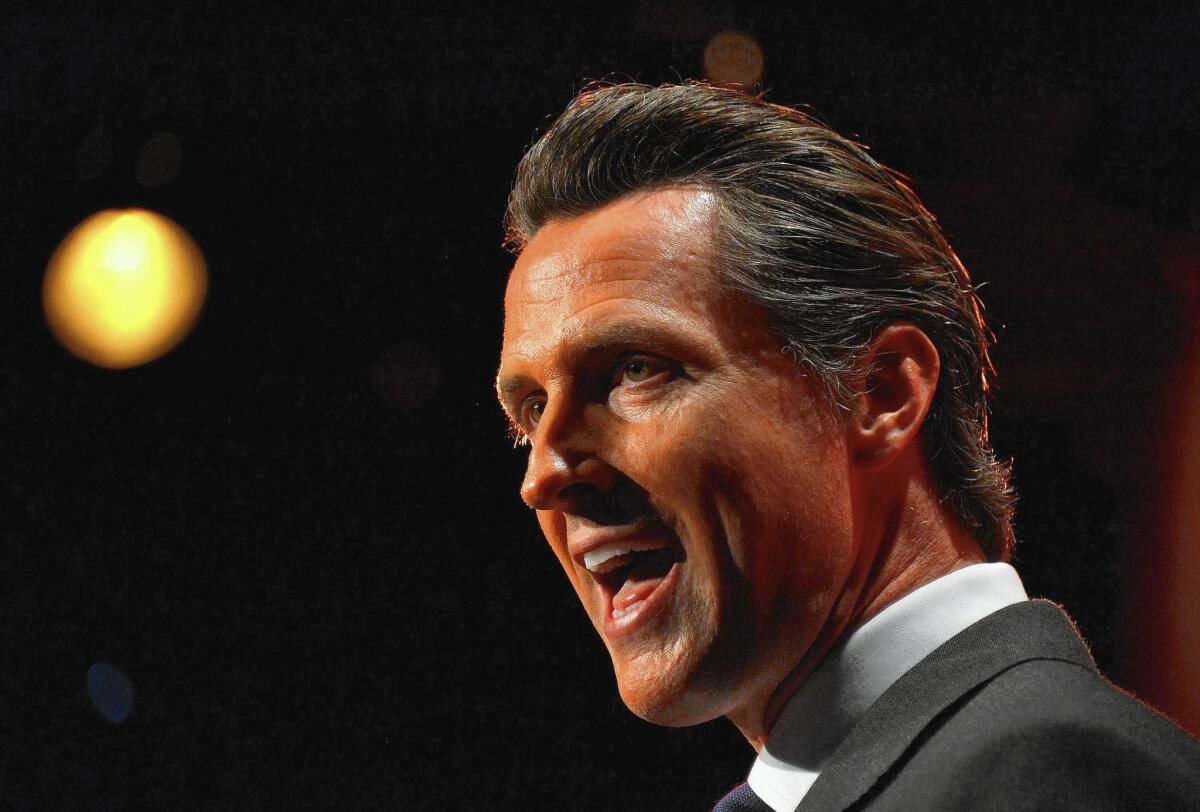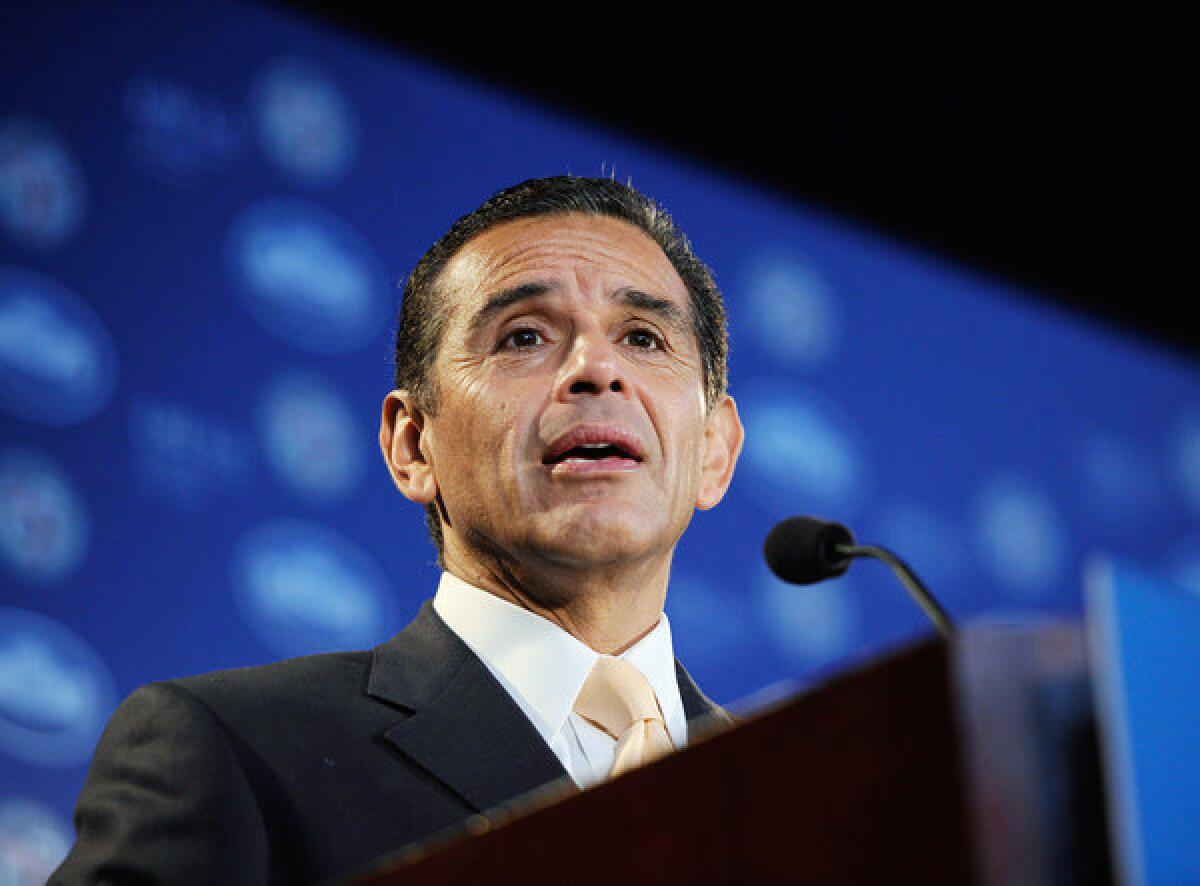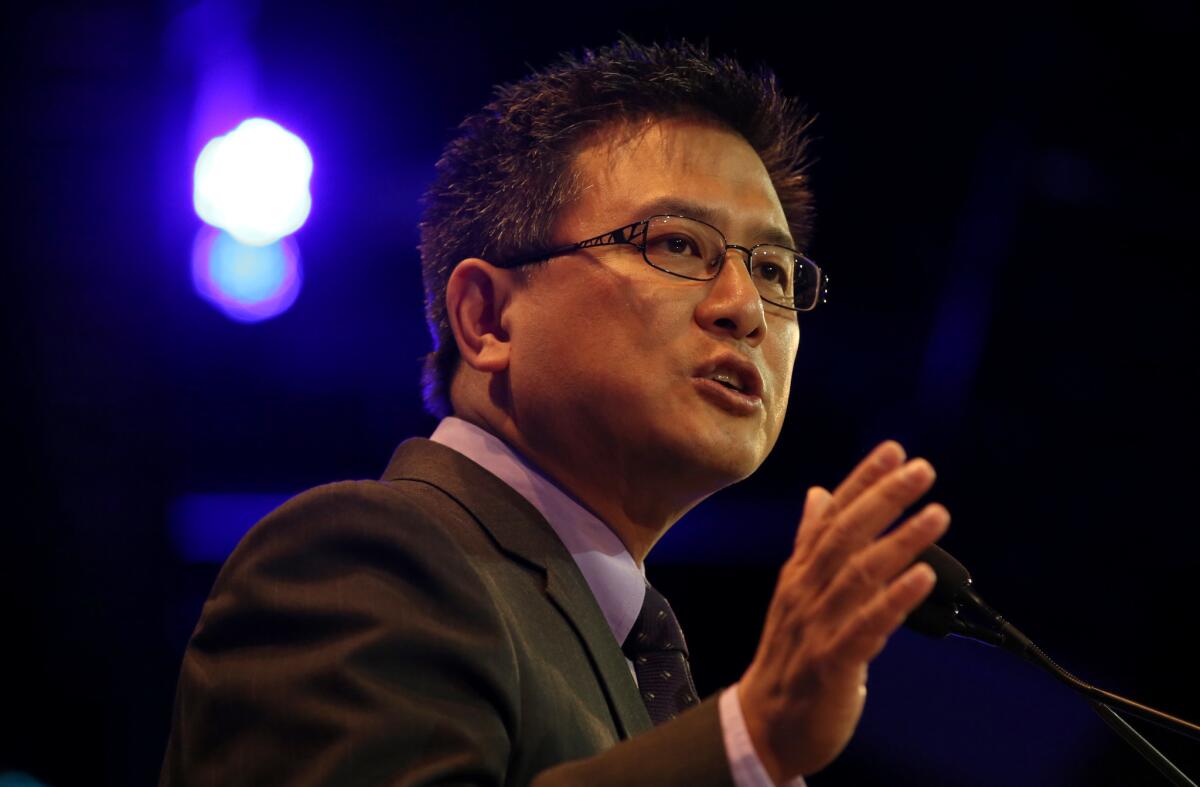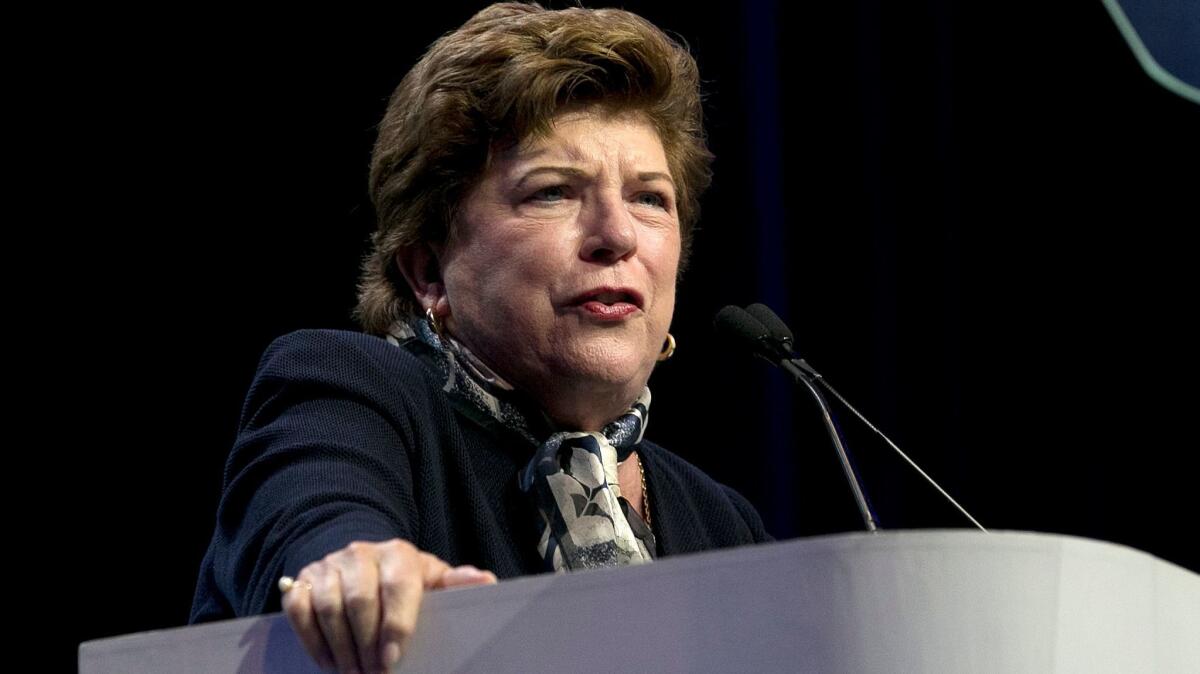California’s 2018 governor’s race is going to be big. Find out who’s in and what’s next

Democrats are dominating the race to-date, no surprise given their 19-point edge in voter registration. (June 6, 2017) (Sign up for our free video newsletter here http://bit.ly/2n6VKPR)
- Share via
At a time when California is the epicenter of the liberal resistance to President Trump, Democratic politicians looking to lead the state’s 39 million residents are laying the groundwork for what could shape up to be the most contentious gubernatorial contest in the state in nearly a decade.
Voters won’t cast ballots until 2018, but candidates are already raising millions of dollars, and courting donors, key political leaders and activists as they chart their paths for a shot at leading the state that boasts the sixth largest economy in the world.
“This is a place that embodies the future — ethnically, economically and attitudinally,” said Darry Sragow, a veteran Democratic consultant in Los Angeles who is unaligned in the race. “The governor we elect in 2018 could have the opportunity to set the pace for moving this country into the new post-industrial age … and set the tone for the rest of the country.”
The state’s next governor will also have to grapple with an enormous set of challenges: dealing with a large population of residents in the U.S. illegally in the face of Trump’s crackdown on illegal immigration, fixing the state’s crumbling infrastructure, managing a state budget that is vulnerable to wild gyrations because of its dependence on taxing the incomes of top earners, balancing the cities’ and the farms’ thirst for water, and many others.
Democrats are dominating the race to-date, no surprise given their 19-point edge in voter registration, supermajorities in both houses of the state Legislature and the fact they have held every statewide elected office since 2011.
The players
Lt. Gov. Gavin Newsom and former Los Angeles Mayor Antonio Villaraigosa are a direct contrast in style to the termed-out governor they hope to replace: philosophical, Latin-quoting Jerry Brown. Both are larger-than-life personalities who built their careers, in part, on their personal charisma. The pair, along with state Treasurer John Chiang, are predicating their candidacies on building upon the economic stability Brown forged in the aftermath of the worst economic downturn since the Great Depression.
Although the candidates running to replace Brown are ideologically similar, their backgrounds and experiences will shape their campaigns.

Newsom, the front-runner in fundraising and early polling, first gained national attention when he granted same-sex marriage licenses in 2004 as mayor of San Francisco. It was so controversial at the time that some of his fellow Democrats blamed him when John Kerry lost the presidential race that year. He also was beset by a scandal of his own making, notably an affair with the wife of a close friend.
He briefly ran for governor in 2009 until it became clear that Brown would make winning difficult. He settled for lieutenant governor instead, but never hid his restlessness in that role. Newsom was the first to announce his gubernatorial intentions in early 2015. A longtime darling of the Democratic Party’s base, Newsom’s path to the governor’s mansion is staked on the state’s most liberal voters, many of whom live in his politically active home base in the Bay Area.

After serving as speaker of the Assembly, Villaraigosa was elected Los Angeles mayor in 2005 and celebrated as the first Latino to hold that position since 1872. But within four years, the luster had faded, due to circumstances both in his control — an extramarital affair — and out of his control — the fallout of the recession. Villaraigosa spent much of the rest of his tenure trying to resurrect his reputation — and the admiration of those who put him into office.
Villaraigosa left elected office in 2013, and his home base of Southern California fails to cast ballots as frequently as their counterparts in the Bay Area. But as one the most high-profile Latino politicians in the nation, Villaraigosa is counting on the growing Latino population being motivated to turn out because of Trump’s immigration policy. He also has been courting working-class voters in the Central Valley and the Inland Empire.

Chiang, who served as state controller before being elected treasurer, is trying to run as Brown’s natural pragmatic successor. He can highlight his stewardship of the state’s finances as he bucked the establishment — in 2011, he docked state lawmakers’ pay for failing to pass a balanced budget.
His campaign frames his candidacy as being the “adult in the room.” But few voters know who he is.

Also running is Delaine Eastin, a former state legislator and state schools’ chief.
The 69-year-old is the only woman in the race, but she’s also the least known and has shown no ability to raise money to date.
She has not held elected office in 14 years. Her agenda includes making college tuition free, enacting universal healthcare, banning fracking and increasing housing affordability.
The Republicans
Republicans are struggling to find a viable candidate.
Rancho Santa Fe venture capitalist John Cox has put $1 million into an exploratory committee. Former GOP Assemblyman David Hadley of Manhattan Beach said he will announce a decision within weeks. Former Los Angeles Rams football player Rosey Grier has said he plans to run, but has not taken any steps to establish a campaign.
If a Republican does enter the race, he or she would face an uphill battle, given Democrats’ voter registration edge. But right-leaning consultants say it is not impossible — as long as the person raises $10 million by the end of the year to get noticed.
“Can a Republican possibly win? Sure. Will donors believe that? Not yet,” said Rob Stutzman, who advised former Gov. Arnold Schwarzenegger.
The money
Raising enough money to wage a competitive campaign in California, the most expensive state in the nation to run for office because of its size and costly media markets, is currently each candidate’s top priority.
They are “dialing for dollars,” said Bill Carrick, an advisor to Los Angeles Mayor Eric Garcetti, whose name has been floated for governor. “You’re probably looking at 30 million bucks or so” per candidate to be competitive.
Brown spent $36 million in 2010, when he last faced a formidable challenger. His allies in labor spent many millions more buttressing his candidacy. The GOP nominee, billionaire Meg Whitman, spent $177 million — $144 million of which came out of her own pocket.
Track the fundraising throughout the campaign »
The unknowns
Few believe the field is settled. Someone like billionaire environmental activist Tom Steyer, or a prominent Republican such as San Diego Mayor Kevin Faulconer, who is widely viewed as the GOP’s best chance at winning a statewide office, could scramble the race. Although Faulconer has insisted he is not running, Steyer has said he is leaving his options open.
The future of several other prominent Democrats is in flux, including Senate President Pro Tem Kevin de León and Garcetti. Part of the uncertainty is driven by Sen. Dianne Feinstein, who is 83 and up for reelection in 2018. She has not said whether she will seek a fifth term and if she doesn’t, this creates another option for Democrats seeking higher office.
Times staff writers Maloy Moore and Ryan Menezes contributed to this report.
ALSO
De León sends candidate-style political video — but says he has no imminent political plans
Trump presidency eases Gavin Newsom's path in his second run for California governor
Vulnerable House Republicans fear political consequences after healthcare vote
Get the L.A. Times Politics newsletter
Deeply reported insights into legislation, politics and policy from Sacramento, Washington and beyond. In your inbox three times per week.
You may occasionally receive promotional content from the Los Angeles Times.








